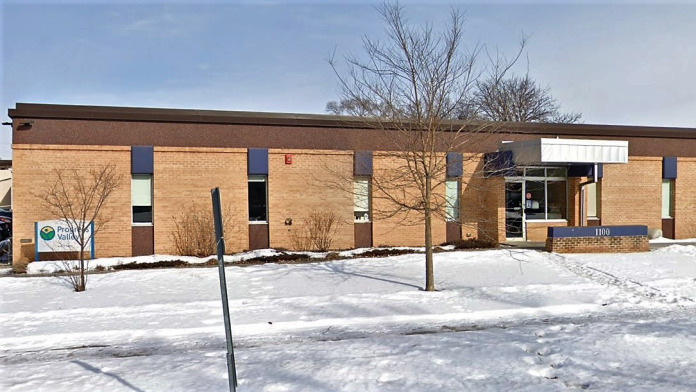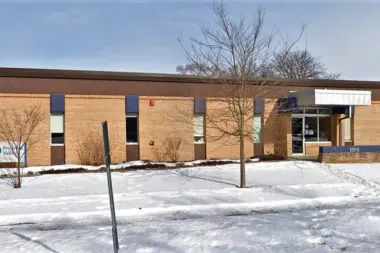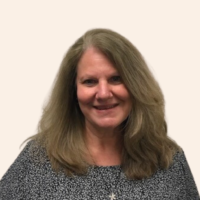This place is a joke! They violate their own policies. They do nothing to support individuals suffering from post acute withdrawal syndrome. They feel no urgency to help clients get on medically assisted treatment which can be a matter of life and death and in my son’s ...
About Progress Valley Inc
The residential addiction treatment center offers a structured environment and a supportive community to help in your substance use recovery. Staff is present around the clock, and the therapists are licensed drug and alcohol counselors. They don’t offer detox, so you’ll begin your stay after detoxing at a detox center. The inpatient stay offers comprehensive services including an individual treatment plan.
You’ll have individual and group counseling. They also have medication management and medical services. You’ll attend life skills, health and wellness workshops, and you can take advantage of vocational services. Master’s level mental health therapists will help you identify and manage any co-occurring disorders you may have. A co-occurring disorder (dual diagnosis) is a mental health issue such as depression or anxiety. Many people with substance use disorder have a co-occurring disorder.
Once you graduate from the inpatient program, you can move to one of the IOPs. They have an IOP with lodging for men/nonbinary individuals in Minneapolis and an IOP with lodging for women/nonbinary individuals in Richfield. Both programs offer structured sober living while attending the intensive program.
If you want to stay at the Bloomington location, they have a mixed gender outpatient program without lodging. They also have a regular mental health clinic. The outpatient program is flexible and offers anywhere from 2-25 hours of services per week. You and your counselor will determine what’s best for you. The outpatient program lasts from 90 to 180 days, but some people stay as long as a year.
You can attend outpatient programs in the day or evening, depending on your schedule. The outpatient program is personalized depending on your treatment goals. You may focus on 12 Step programs or other treatment modalities such as cognitive behavioral therapy (CBT). In all of the programs, you’ll have peer support, assessors and counselors helping you through the treatment.
Facility Overview
Latest Reviews
Rehab Score
Gallery


Other Forms of Payment
Private insurance refers to any kind of healthcare coverage that isn't from the state or federal government. This includes individual and family plans offered by an employer or purchased from the Insurance Marketplace. Every plan will have different requirements and out of pocket costs so be sure to get the full details before you start treatment.
Self-pay involves paying for treatment out of your own pocket. You can use savings or credit, get a personal loan, or receive help from family and friends to fund your treatment. If you don't have insurance or your insurance plan doesn't cover a specific program, self-pay can help ensure you still get the care you need.
Financial aid can take many forms. Centers may have grants or scholarships available to clients who meet eligibility requirements. Programs that receive SAMHSA grants may have financial aid available for those who need treatment as well. Grants and scholarships can help you pai for treatment without having to repay.
Medicaid is a state based program that helps lower-income individuals and families pay for healthcare. Medicaid covers addiction treatment so those enrolled can use their coverage to pay for rehab. When a program accepts Medicaid the client often pays very little or nothing out of their own pocket.
Addiction Treatments
Levels of Care
Progress Valley Outpatient Services provide an opportunity to remain connected to staff and peers while gaining support for the new and ongoing challenges of a sober lifestyle. Typically, outpatient services begin at the end of the client’s residential program at Progress Valley when the individual client takes the lead in their discharge planning and creating a Transition Plan with their counselor. Family members and other professionals may be included in the planning if the situation warrants or the client requests. Outpatient treatment services are also available to appropriate clients not having participated in a Progress Valley residential setting.
Residential treatment programs are those that offer housing and meals in addition to substance abuse treatment. Rehab facilities that offer residential treatment allow patients to focus solely on recovery, in an environment totally separate from their lives. Some rehab centers specialize in short-term residential treatment (a few days to a week or two), while others solely provide treatment on a long-term basis (several weeks to months). Some offer both, and tailor treatment to the patient's individual requirements. At Progress Valley clients also receive educational lectures, attend 12-step meetings, enjoy recreational activities and begin to adhere to a set of rules that are designed to develop routine into their lives. When clients are ready, they are expected to maintain employment, attend school or work voluntarily in the community. Following residential services, clients may be transferred to outpatient relapse prevention groups and additional services for continued support.
Intensive Outpatient Programs (IOP) are for those who want or need a very structured treatment program but who also wish to live at home and continue with certain responsibilities (such as work or school). IOP substance abuse treatment programs vary in duration and intensity, and certain outpatient rehab centers will offer individualized treatment programs.
Rehab aftercare programs provide robust, wraparound care for clients who have completed detox and/or intensive inpatient rehab. Their services may vary widely, but typically include peer coaching, relapse prevention support, 12 step program induction, career counseling, and related community reintegration services. The client's case manager and recovery team coordinates with the client to identify the rehab aftercare services they need to promote their sustained sobriety.
12-step programs are addiction recovery models based on Alcoholics Anonymous (AA). A number of substance abuse programs (including some drug and alcohol rehab centers) use the 12 steps as a basis for treatment. Beginning steps involve admitting powerlessness over the addiction and creating a spiritual basis for recovery. Middle steps including making direct amends to those who've been hurt by the addiction, and the final step is to assist others in addiction recovery in the same way. 12-Step offshoots including Narcotics Anonymous (NA), Cocaine Anonymous (CA), Dual Recovery Anonymous (DRA), Sex and Love Addicts Anonymous (SLAA) and Gamblers Anonymous (GA).
Progress Valley assists adult men and women who have a history of problems with substance use by offering long-term sober housing. Tenants become fully immersed in the recovery community and receive the time, structure, and support necessary to build a strong foundation of recovery. Housed separately, men and women work closely with staff, peers, and seasoned sponsors to create a safe and supportive environment where individuals learn and put into practice the sober living skills necessary for making a successful transition to independent living. Tenants participate in community-related sober activities while working, volunteering, or continuing their educations.
At certain points in the recovery process, it's important to have support available 24/7. 24-hour clinical care offers a safe environment in which to recover from drug or alcohol addiction in peace, knowing medical detox and other treatment will happen with professionals on hand.
Drug and alcohol addiction often takes a heavy toll on one's body. Over time, a physical dependence can develop, meaning the body physiologically needs the substance to function. Detox is the process of removing drugs and/or alcohol from the body, a process that can be lethal if mismanaged. Medical detox is done by licensed medical professionals who monitor vital signs and keep you safe, healthy, and as comfortable as possible as you go through detox and withdrawal.
Treatments
The goal of treatment for alcoholism is abstinence. Those with poor social support, poor motivation, or psychiatric disorders tend to relapse within a few years of treatment. For these people, success is measured by longer periods of abstinence, reduced use of alcohol, better health, and improved social functioning. Recovery and Maintenance are usually based on 12 step programs and AA meetings.
Drug addiction is defined as an inability to stop using drugs even though it causes negative consequences in your life. Drug rehab in Minnesota provides treatment for drug addiction in a variety of settings including inpatient treatment and outpatient treatment.
Many of those suffering from addiction also suffer from mental or emotional illnesses like schizophrenia, bipolar disorder, depression, or anxiety disorders. Rehab and other substance abuse facilities treating those with a dual diagnosis or co-occurring disorder administer psychiatric treatment to address the person's mental health issue in addition to drug and alcohol rehabilitation.
Substance rehabs focus on helping individuals recover from substance abuse, including alcohol and drug addiction (both illegal and prescription drugs). They often include the opportunity to engage in both individual as well as group therapy.
Programs
Adult rehab programs include therapies tailored to each client's specific needs, goals, and recovery progress. They are tailored to the specific challenges adult clients may face, including family and work pressures and commitments. From inpatient and residential treatment to various levels of outpatient services, there are many options available. Some facilities also help adults work through co-occurring conditions, like anxiety, that can accompany addiction.
Young adulthood can be an exciting, yet difficult, time of transition. Individuals in their late teens to mid-20s face unique stressors related to school, jobs, families, and social circles, which can lead to a rise in substance use. Rehab centers with dedicated young adult programs will include activities and amenities that cater to this age group, with an emphasis on specialized counseling, peer socialization, and ongoing aftercare.
Recovery is most successful when clients feel accepted and validated by their peers and treatment providers. Facilities that offer LGBTQ-inclusive programming are committed to creating a safe space where everyone can grow and recover without fear of judgment or discrimination. They will have dedicated policies in place to create a safe and supportive environment that fosters free expression.
Clinical Services
Group therapy is any therapeutic work that happens in a group (not one-on-one). There are a number of different group therapy modalities, including support groups, experiential therapy, psycho-education, and more. Group therapy involves treatment as well as processing interaction between group members.
In individual therapy, a patient meets one-on-one with a trained psychologist or counselor. Therapy is a pivotal part of effective substance abuse treatment, as it often covers root causes of addiction, including challenges faced by the patient in their social, family, and work/school life.
Trauma therapy addresses traumatic incidents from a client's past that are likely affecting their present-day experience. Trauma is often one of the primary triggers and potential causes of addiction, and can stem from child sexual abuse, domestic violence, having a parent with a mental illness, losing one or both parents at a young age, teenage or adult sexual assault, or any number of other factors. The purpose of trauma therapy is to allow a patient to process trauma and move through and past it, with the help of trained and compassionate mental health professionals.
Research clearly demonstrates that recovery is far more successful and sustainable when loved ones like family members participate in rehab and substance abuse treatment. Genetic factors may be at play when it comes to drug and alcohol addiction, as well as mental health issues. Family dynamics often play a critical role in addiction triggers, and if properly educated, family members can be a strong source of support when it comes to rehabilitation.
Life skills trainings involve all the skills a person must have in order to function successfully in the world. These include time management, career guidance, money management, and effective communication. Truly successful addiction recovery is based on the ability to not only live substance-free, but to thrive. Life skills teaches the practical necessities of functioning in society, which sets clients up for success in life, and therefore sobriety.
Amenities
-
Residential Setting
-
Private Rooms
Staff & Accreditations
Staff

Shelly Bohmert, MA, LADC, LPCC
Director of Mental Health

Jared Bostrom, DMFT, LMFT, LADC
Executive Director

Renee Bowman, BA, LADC
Director of Residential Programs

Lisa Buck, BA
Director of Development & Communications
Accreditations

The Commission on Accreditation of Rehabilitation Facilities (CARF) is a non-profit organization that specifically accredits rehab organizations. Founded in 1966, CARF's, mission is to help service providers like rehab facilities maintain high standards of care.
CARF Accreditation: Yes

The National Association of Addiction Treatment Providers (NAATP) is a professional association that represents organizations in the field of addiction services. Founded in 1978, NAATP's mission is to advance addiction services and ensure that high-quality addiction treatment is available and accessible.
NAATP Member: Yes
Member ID: 420
Contact Information
1100 East 80th Street
Bloomington, MN 55420